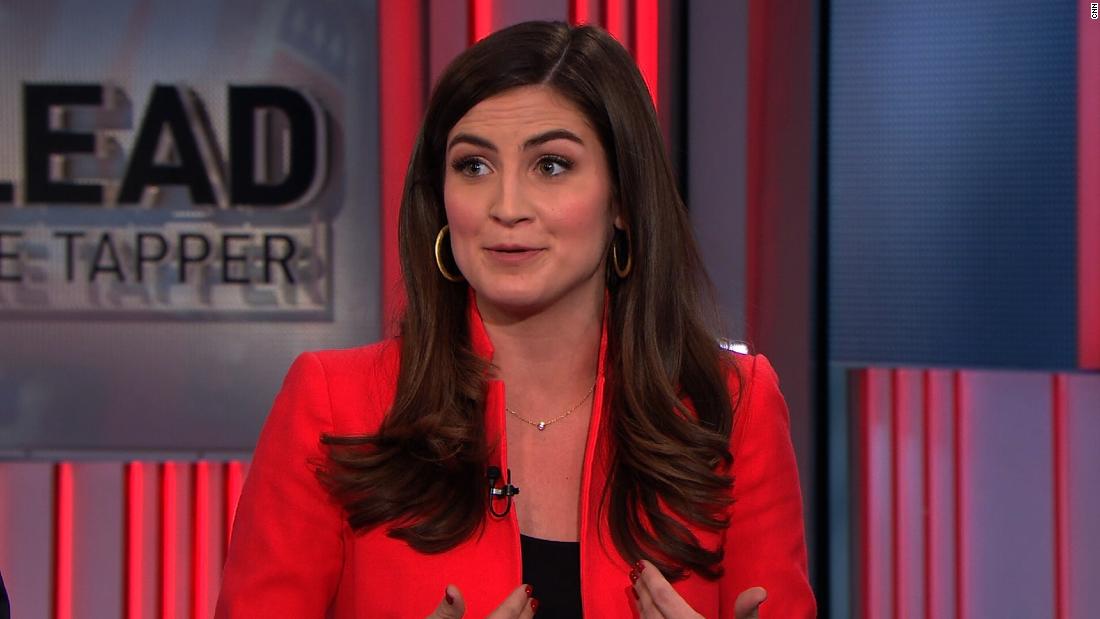Crenshaw, Trans Troops & CNN: A Heated Debate Unfolds!
Should military service be defined by an individual's capabilities and dedication, or by factors unrelated to their ability to serve? The debate surrounding transgender individuals in the military has ignited intense discussions, raising questions about inclusivity, policy, and the very definition of service.
The issue gained prominence when former President Donald Trump implemented a ban on transgender individuals serving in the military. This decision sparked widespread controversy and legal challenges, igniting a national conversation about the rights and capabilities of transgender service members. The ban was justified by some on the grounds of medical costs and readiness, while opponents argued it was discriminatory and undermined the principles of equality and inclusion.
CNN's Kaitlan Collins has played a significant role in bringing this debate to the forefront through her interviews and reporting. She has engaged with key figures, including Republican Representative Dan Crenshaw and transgender service members, to explore the complexities and nuances of the issue. Her approach has been characterized by direct questioning and a willingness to challenge inconsistencies in the arguments presented.
One notable instance involved Collins's interview with Dan Crenshaw, where she pressed him on his evolving stance on transgender military members. Collins confronted Crenshaw with past statements that appeared to contradict his support for the Trump administration's ban. The exchange highlighted the political challenges and shifting positions surrounding the issue.
Collins also interviewed Navy Commander Emily Shilling, a transgender service member, following Trump's executive order. Shilling shared her personal experiences and perspectives on the impact of the ban on her career and fellow transgender service members. These first-person accounts helped to humanize the debate and provide a deeper understanding of the consequences of the policy.
Another compelling interview featured Lieutenant Commander Geirid Morgan, a transgender Navy diver. Morgan discussed newly revealed details about the Pentagon's plan to ban transgender service members who did not adhere to specific criteria. These interviews shed light on the internal deliberations and policy considerations within the Department of Defense.
- Reptile Heat Lamp Cages Safety First Top Picks
- Brian Houston Net Worth 2024 The Truth Revealed Updated
Collins's coverage of the transgender military ban also extended to broader discussions about the executive order and its implications. She invited guests on "The Source" to analyze the legal and social ramifications of the policy. These discussions provided a platform for experts and advocates to share their insights and perspectives.
| Kaitlan Collins Bio | |
|---|---|
| Full Name | Kaitlan Collins |
| Date of Birth | April 7, 1992 |
| Place of Birth | Prattville, Alabama, USA |
| Education |
|
| Career Information | |
| Occupation | Journalist, Anchor |
| Employer | CNN |
| Notable Roles |
|
| Years Active | 2014Present |
| Professional Information | |
| Known For |
|
| Awards and Recognition |
|
| Website | CNN Profile |
The core of the debate surrounding transgender individuals in the military often revolves around the issue of medical costs. Proponents of the ban have argued that the medical care required by transgender service members, including hormone therapy and gender confirmation surgeries, places an undue financial burden on the military. They contend that these costs could be better allocated to other areas of defense spending.
However, opponents of the ban argue that the actual costs associated with transgender medical care are relatively small compared to the overall military budget. They point out that the military spends far more on other medical procedures and treatments, and that the cost of providing care to transgender service members is negligible in comparison.
Another key aspect of the debate centers on military readiness. Some argue that the presence of transgender individuals in the military could disrupt unit cohesion and undermine readiness. They suggest that the medical procedures and recovery times associated with gender transition could make transgender service members less available for deployment and other duties.
In response, advocates for transgender inclusion argue that transgender service members are fully capable of meeting the physical and mental demands of military service. They point to the numerous transgender individuals who have served with distinction in the military, demonstrating their commitment and competence.
The debate over transgender individuals in the military also raises fundamental questions about equality and discrimination. Opponents of the ban argue that it is discriminatory to deny individuals the opportunity to serve based on their gender identity. They contend that all qualified individuals should be allowed to serve, regardless of their gender identity or sexual orientation.
Supporters of the ban, on the other hand, argue that the military has a right to establish standards and requirements for service. They maintain that the ban is not discriminatory, but rather a necessary measure to ensure military readiness and effectiveness.
The legal challenges to the transgender military ban have further complicated the issue. Several lawsuits have been filed, arguing that the ban violates the constitutional rights of transgender individuals. These legal challenges have raised questions about the legal basis for the ban and the extent to which the military can restrict the rights of transgender service members.
The courts have issued conflicting rulings on the issue, adding to the uncertainty and confusion surrounding the policy. Some courts have blocked the ban from being implemented, while others have upheld its legality. The legal battles are ongoing and are likely to continue for some time.
The debate over transgender individuals in the military has also had a significant impact on transgender service members themselves. Many transgender individuals have been forced to choose between their military careers and their gender identity. The ban has created uncertainty and anxiety for transgender service members, who fear being discharged or denied opportunities for advancement.
Despite the challenges, many transgender service members have continued to serve with distinction, demonstrating their commitment and resilience. They have formed support networks and advocacy groups to fight for their rights and promote understanding of transgender issues.
The Biden administration overturned the Trump-era ban on transgender individuals serving in the military. This decision was praised by LGBTQ+ advocates and civil rights organizations, who hailed it as a victory for equality and inclusion. The new policy allows transgender individuals to serve openly and access medical care related to their gender identity.
The debate over transgender individuals in the military is likely to continue, as different perspectives and values clash. However, the issue has raised important questions about equality, discrimination, and the role of the military in a diverse society. The experiences of transgender service members have shed light on the challenges and contributions of this community, and have helped to promote greater understanding and acceptance.
The issue also extends beyond the United States. Many countries around the world have grappled with the question of transgender individuals in their militaries. Some countries have embraced inclusive policies, while others have maintained restrictions or bans. The international landscape reflects the diversity of opinions and approaches to this complex issue.
The debate over transgender individuals in the military is not simply a political issue; it is a human issue. It affects the lives of real people who are dedicated to serving their country. By understanding the different perspectives and experiences involved, we can engage in a more informed and constructive conversation about the future of transgender individuals in the military.
Ultimately, the decision of whether to allow transgender individuals to serve in the military is a complex one with no easy answers. It requires careful consideration of the competing interests and values involved. However, by promoting understanding and respect, we can create a more inclusive and equitable environment for all who wish to serve their country.
Moving forward, it is crucial to have open and honest conversations about the challenges and opportunities associated with transgender inclusion in the military. This includes addressing concerns about medical costs and readiness, while also recognizing the contributions and sacrifices of transgender service members.
It is also important to learn from the experiences of other countries that have adopted inclusive policies for transgender service members. By examining the successes and challenges of these policies, we can gain valuable insights into how to create a more welcoming and supportive environment for transgender individuals in the military.
In addition to policy changes, it is also important to address the cultural and social barriers that transgender service members may face. This includes providing training and education to military personnel on transgender issues, as well as promoting a culture of respect and inclusivity.
By working together, we can create a military that is truly representative of the diverse society it serves. This includes ensuring that all qualified individuals, regardless of their gender identity, have the opportunity to serve their country and contribute to its defense.
The ongoing debate surrounding transgender individuals in the military serves as a reminder of the importance of ongoing dialogue and progress towards a more inclusive and equitable society. As we continue to learn and grow, we must remain committed to upholding the principles of equality and opportunity for all.

CNN highlights Dan Crenshaw’s transgender military flip flop

CNN Profiles Kaitlan Collins White House reporter CNN

CNN reporter's message to grown men CNN Video